Here’s the coronavirus death toll through October 14. The raw data from Johns Hopkins is here.
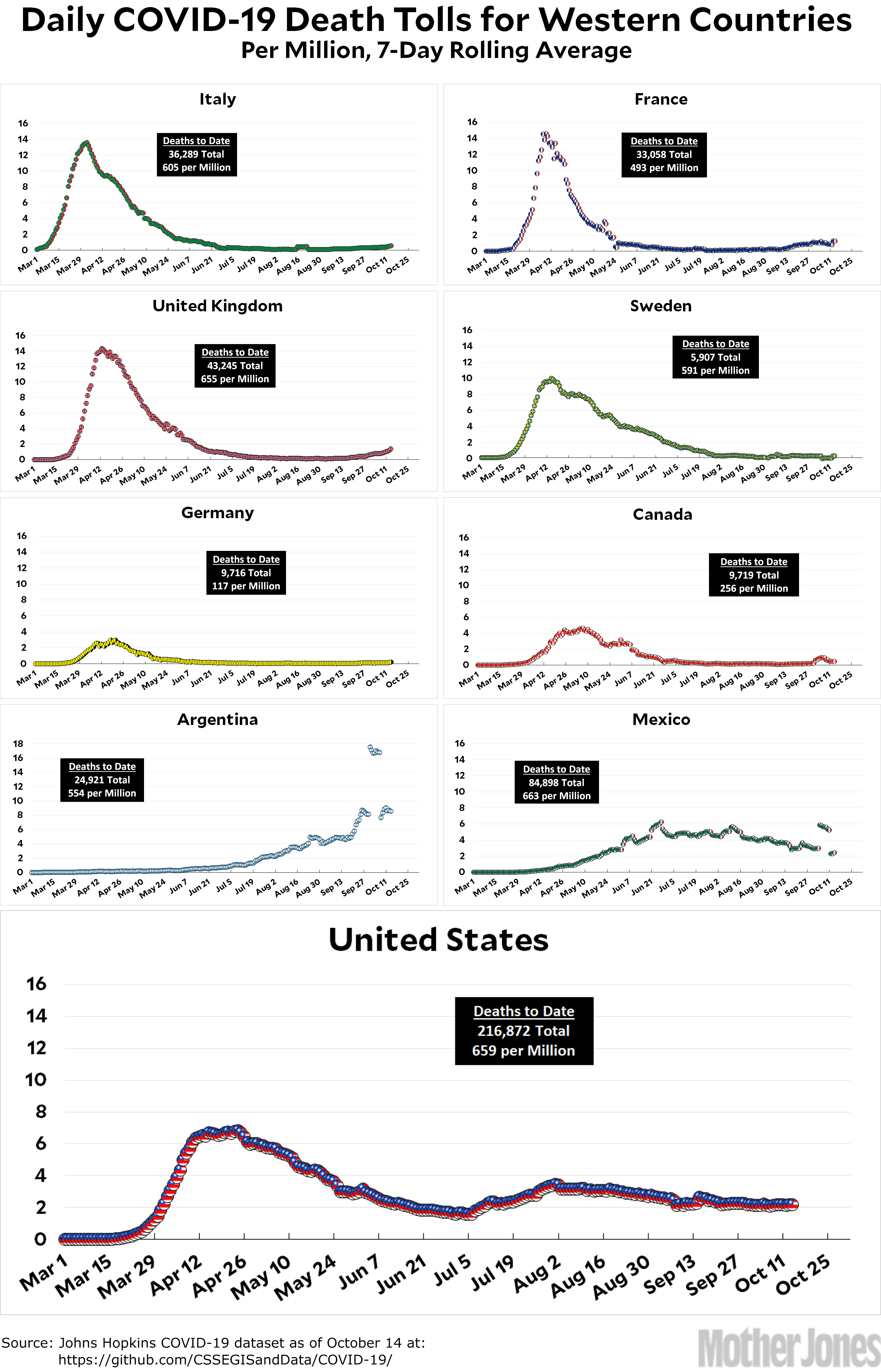

Here’s the coronavirus death toll through October 14. The raw data from Johns Hopkins is here.

To a bird, national borders don’t exist and concertina wire has no moral valence. It’s just another place to perch.

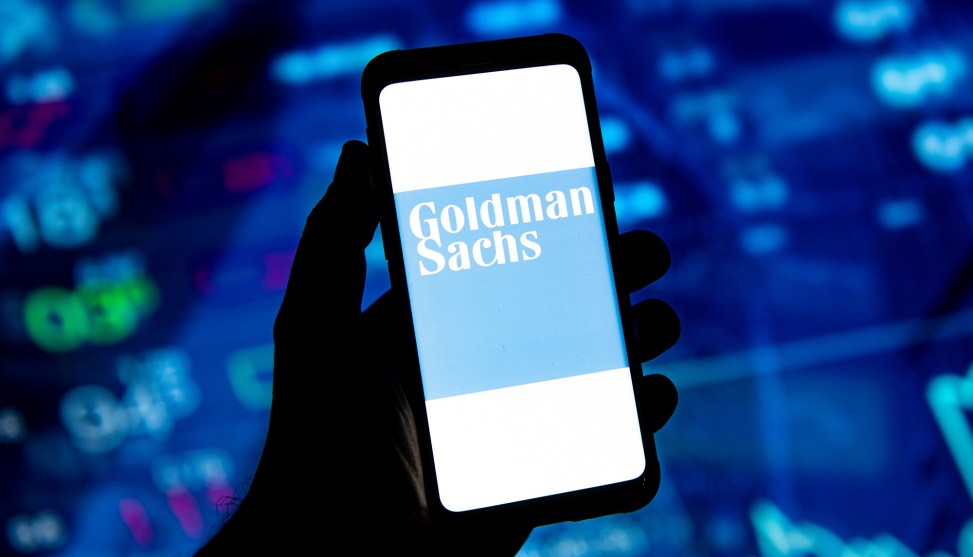
Mateusz Slodkowski/SOPA Images via ZUMA
You may have lost your job thanks to COVID-19. Or maybe you’ve drained your savings. That’s a shame, but I have some good news to take the sting out of your misfortune: Wall Street is still doing fine. Goldman Sachs earned nearly $4 billion in its most recent quarter:
Goldman Sachs Group Inc.’s third-quarter profit nearly doubled, the latest confirmation that, even in a pandemic and a recession, Wall Street can still make money….Worries that the coronavirus would rival 2008 as a threat to the U.S. financial system have subsided for now. Banks’ trading fees have surged. Bond investors’ appetite has allowed companies that borrowed billions from banks in emergency loans this spring to pay them back. Big corporate bankruptcies have leveled off.
….Goldman has had a relatively easy crisis so far. Efforts by the Federal Reserve to support markets have allowed the firm to move loans off its books and reap fees by buying and selling securities.
In fairness to the Fed, they may have helped Goldman but they’ve also tried to help the rest of us by appealing to Congress to pass a coronavirus aid/stimulus package. Congress hasn’t done it yet, but that’s only because Republican dedication to screwing the working class outweighs even its own sense of self-preservation.
Joe Biden has promised that his tax plan won’t raise taxes for anyone making less than $400,000. The conservative American Enterprise Institute decided to take a look at that and see if it was true. It is:
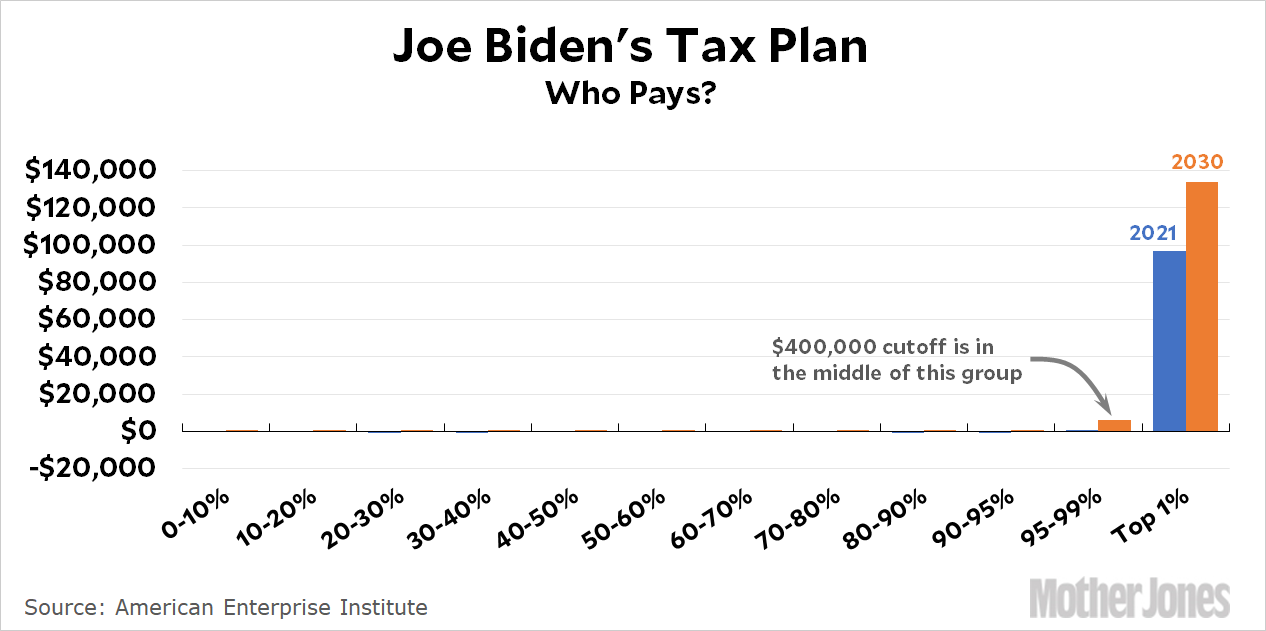
In 2021, everyone under $400,000 pays lower taxes, while the top 1 percent pays about $100,000 more in taxes. By 2030, every income group pays slightly higher taxes (about $50 per year at the median) while the top 1 percent pays $134,000 more.
The effect of all this on economic growth is essentially zero. AEI estimates that Biden’s plan would produce a minuscule reduction in GDP over its first decade and a minuscule increase in GDP during its second decade.
In other words, Biden has told the truth about his tax plan. How refreshing and unusual in the Trump era.
Here’s the coronavirus death toll through October 13. The raw data from Johns Hopkins is here.
With the caveat that it’s still too early to say anything definitive, it’s feels worth pointing out that the jury is still out on the Swedish experiment. Their overall death rate was high during the first surge of the coronavirus, but as other countries are starting to see a second surge Sweden has stayed consistently at near zero for more than two months now. Germany remains the role model to emulate, but it’s possible that the Swedish approach still has something to teach us. However, it will be several more months before we can say anything for sure.
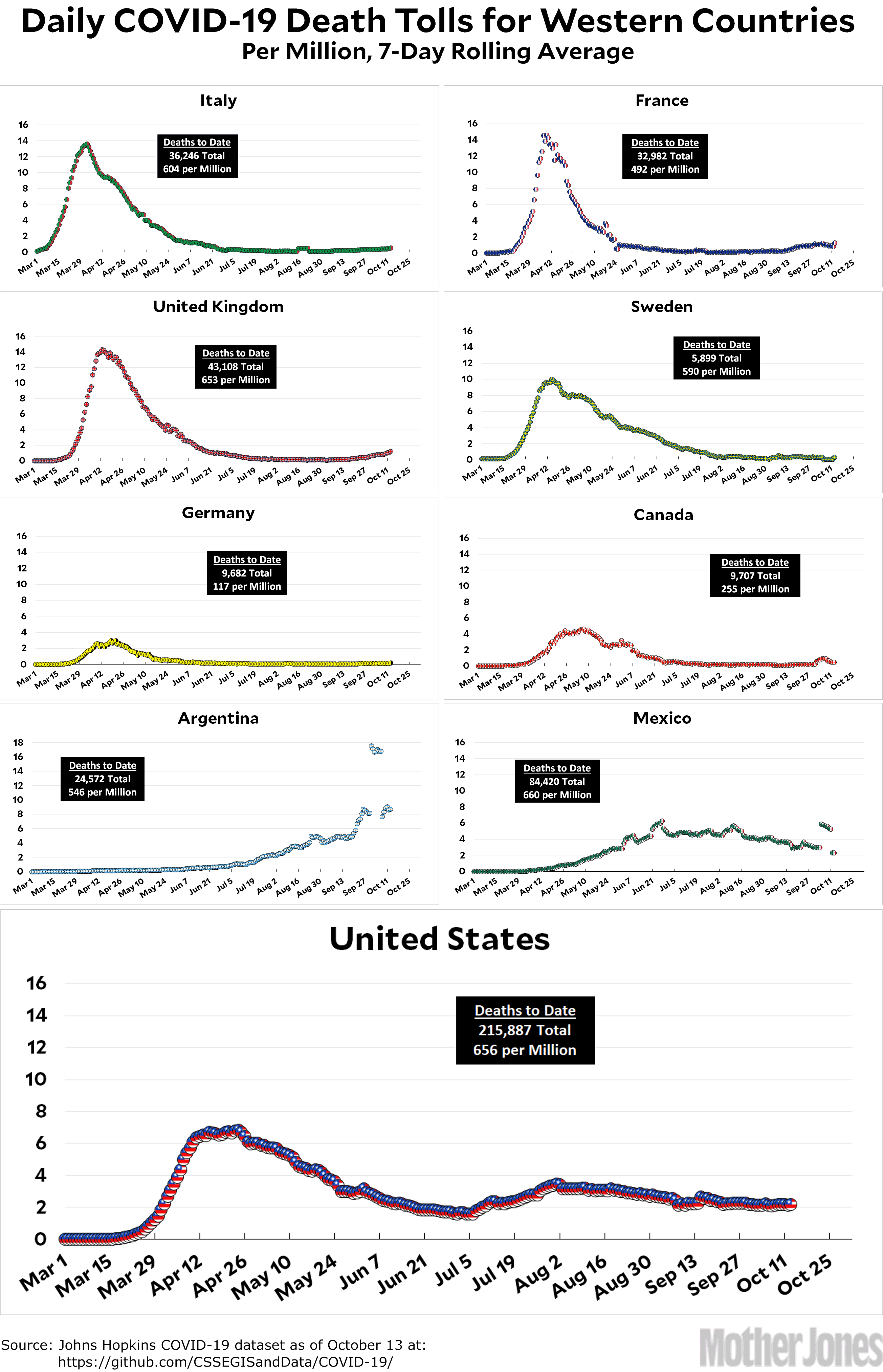

Shane T. Mccoy via ZUMA
In the pantheon of Republican pseudo-scandals, “unmasking” has always been one of the dumbest. National security officials routinely ask the intelligence community to “unmask” names that have been redacted in raw reports so they can get a better idea of who’s doing what to whom, and the Obama administration did this just like every other administration. Republicans, however, have insisted for years that Susan Rice and others used unmasking requests as cover for a campaign against Michael Flynn, and naturally they demanded an investigation. Just as naturally, Bill Barr gave them what they wanted.
Sadly for Republicans, the investigation turned up nothing. That’s not surprising, and neither is this:
Bash’s team was focused not just on unmasking, but also on whether Obama-era officials provided information to reporters, according to people familiar with the probe, who spoke on the condition of anonymity to discuss a sensitive investigation. But the findings ultimately turned over to Barr fell short of what Trump and others might have hoped, and the attorney general’s office elected not to release them publicly, the people familiar with the matter said. The Washington Post was unable to review the full results of what Bash found.
The investigation basically exonerated the Obama team and probably would have hurt Donald Trump’s reelection, so Barr decided to keep it under wraps. This is how the Justice Department works these days: it’s a PR shop for Donald Trump, not an independent agency serving the best interests of the American public. Hopefully that will change in a few months.

Avishek Das/SOPA Images via ZUMA
Apropos of nothing in particular, I want to congratulate the NBA. They were the first pro sports league to shut down over the coronavirus pandemic, which was instrumental in helping to shock people into believing it was real. Then, when they restarted play, they put together a complex and wearying “bubble” in Florida that successfully prevented even a single player from becoming infected. And through it all, they allowed their players to use the second half of the season to fight for social justice both on the court and off.
I don’t know what their motivations were for all of these things. Maybe they were righteous, maybe they weren’t—though NBA commissioner Adam Silver has certainly said all the right things. But it doesn’t really matter. One way or another, they ended up doing the right thing and setting an example for everyone else to try to follow. They deserve kudos for figuring how to do the right thing on the fly, under trying circumstances.
A couple of months ago I put up a picture of Saddleback, a pair of mountains that form the backdrop for most of my part of Orange County. However, it was a panoramic view that didn’t give a good sense of the way that Saddleback sort of looms over everything around here, and I promised to put up a better picture eventually. Well, today’s the day, with this photo taken at a fairly normal focal length and showing Saddleback with some office buildings in front of it. This is the more common view of Saddleback, though it’s usually a little hazier than it is in this picture.
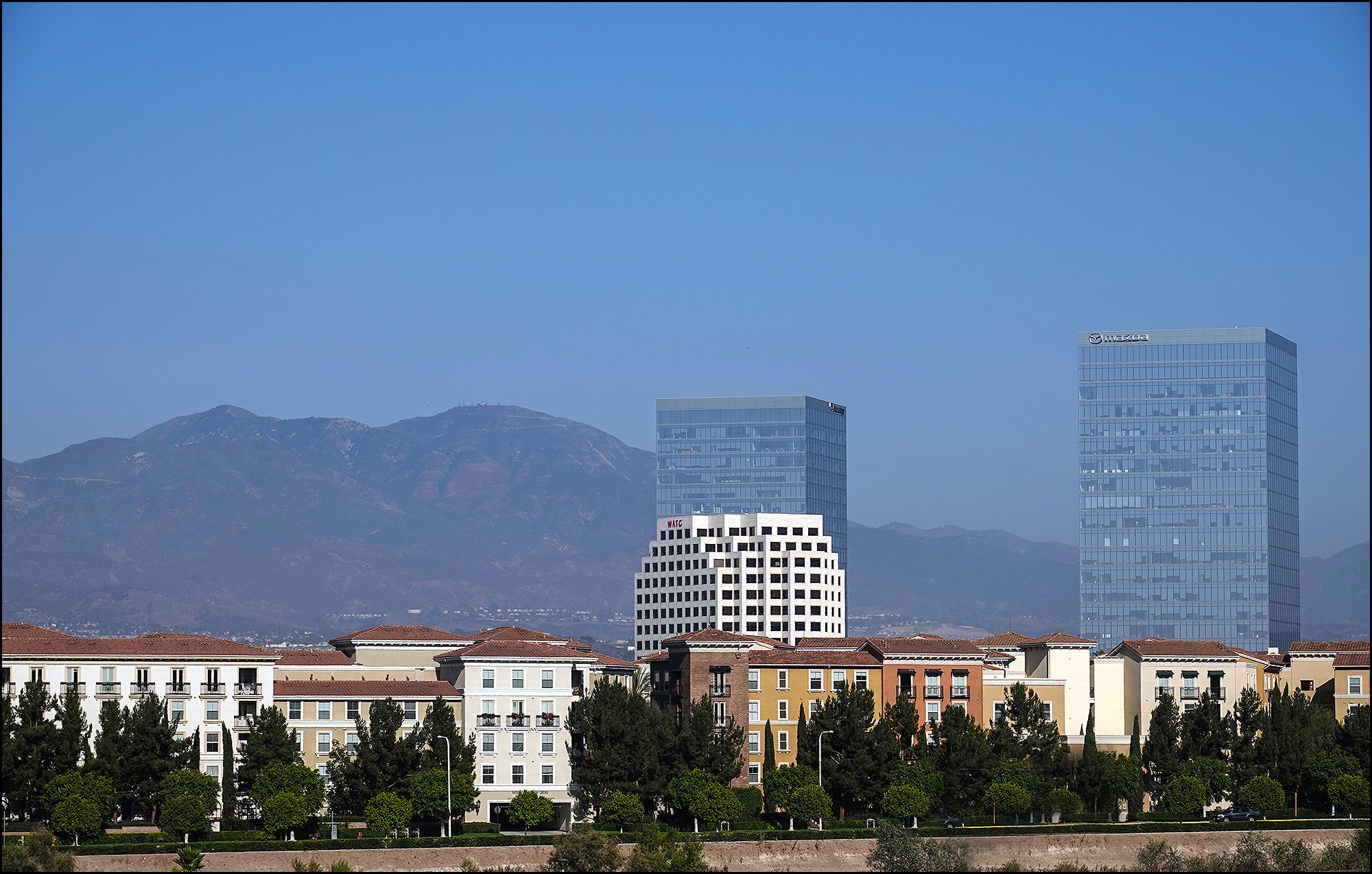
I am very much in favor of compromising with Republicans and passing a coronavirus aid package. The strongest pushback I’ve gotten over this has been from fellow liberals who argue that it might help Donald Trump. It also might help a few Republican senators who are on the edge of defeat. If winning control of the presidency and flipping the Senate are the top items on the progressive agenda right now, then anything that endangers it, no matter how important, needs to be put off. It’s just too risky.
This is all true. I accept it. Except for one thing: it’s our last chance to help people who have been devastated by the coronavirus shutdowns and are likely to be even more devastated when the winter surge gets going. If Joe Biden wins the election, as seems likely, Republicans will steadfastly refuse to pass anything. Period. Nobody will ever get any assistance of any kind.
This is a perennial liberal weakness, but there you have it: I can’t abide the thought of making people suffer over political gamesmanship. This probably means I’m willing to settle for a bit less than the most hard-nosed negotiation would produce, but in a case like this that doesn’t bother me. Time is running short, and holding out over the gain or loss of an additional 10 percent in the HEROES Act—or a few minor regulations about how the money is spent—is just too dicey for me to accept.
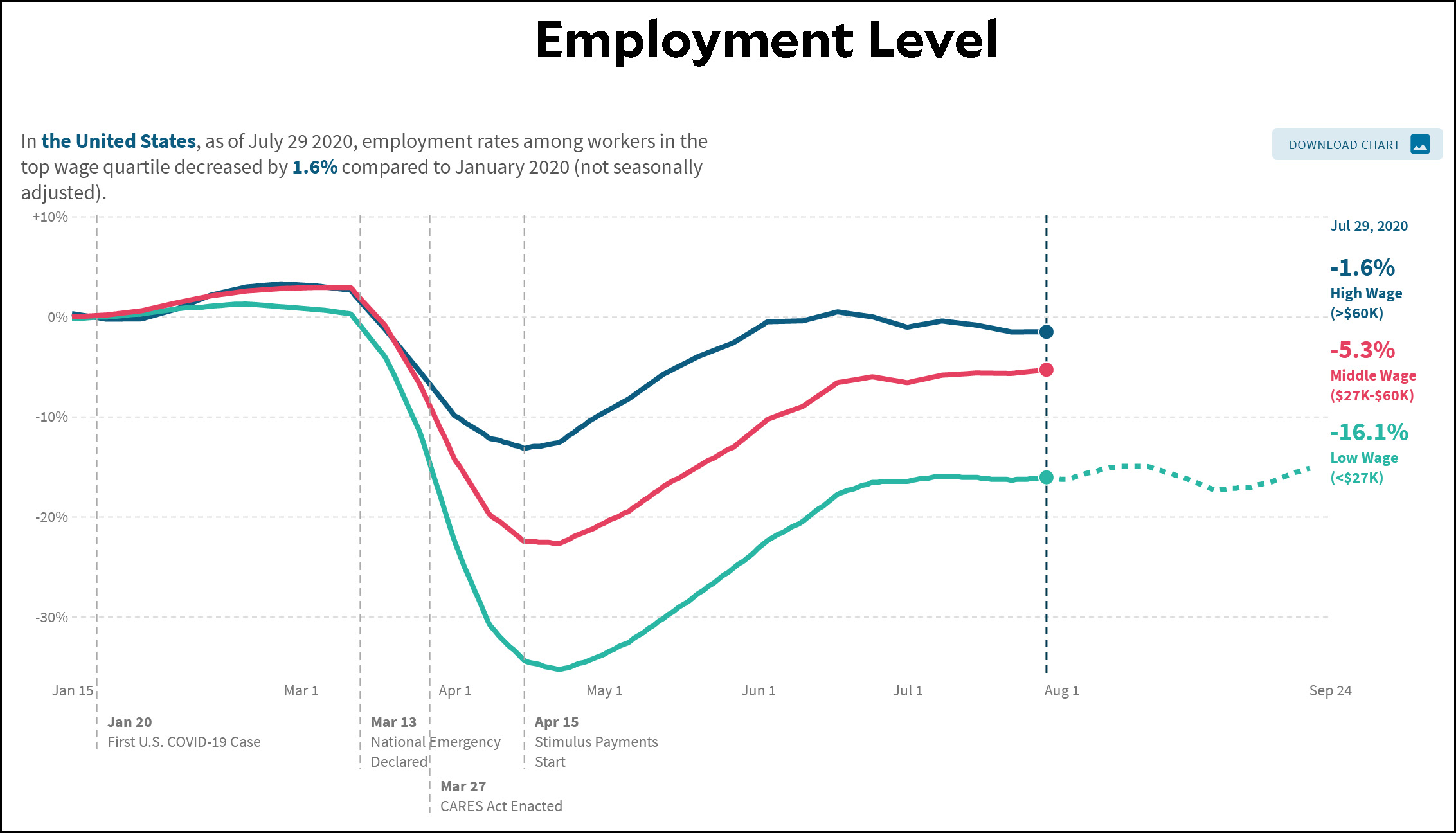
Nobody will thank us for this. Most voters will never even realize that liberals are responsible for there being any assistance at all. If anything, it will probably help Republicans slightly. That’s a bitter pill to swallow, but this is the business we’ve chosen. Let’s get on with it.
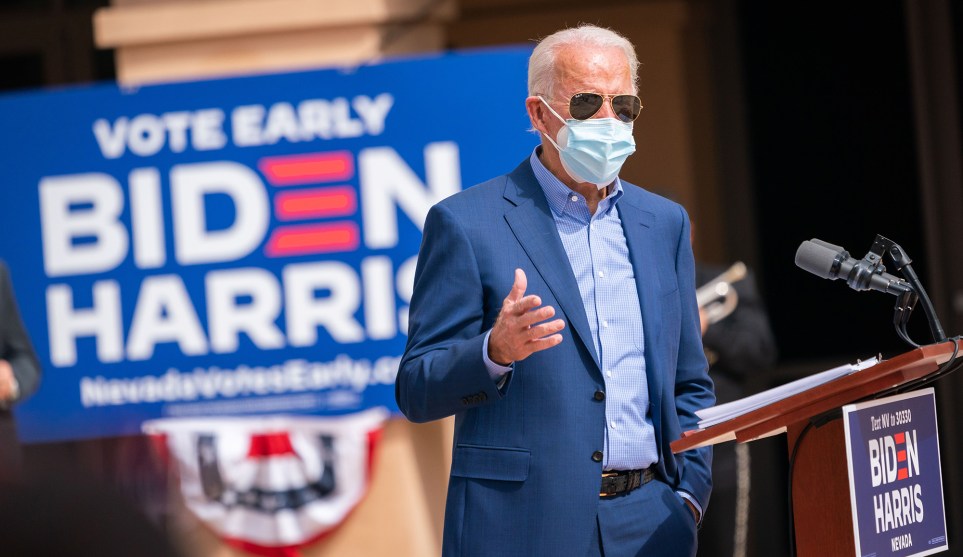
Joe Biden is the only candidate who is keenly aware that the middle 20 percent is the key to victory in November.Adam Schultz/Biden/ZUMA
Mike Davis is a Marxist and, as Jonny Coleman and Molly Lambert put it in an interview today, the author of several influential “proto-doomer urban theory classics.” But even taking that into account, this is an odd thing for Davis to say:
We need to face certain facts. It should be obvious—and I must say I was critical of Occupy Wall Street in this sense, right from the beginning, this idea of the 1 percent. In the elections, over the past hundred years where Democratic presidential candidates have had the largest margin of victory, still, the Republicans are able to count on 37 to 41 percent of the vote. Alf Landon in 1936, at 37 percent of the vote. Barry Goldwater got almost 39 percent of the vote. Trump’s popularity ratings are still about 40 percent. But you need to ask yourself—why this constant percentage in American political history? What does it say, particularly about the upper middle class, the local country club elites? Today the hedge funds and private equity people are a very large base in this country for conservative politics. This was true in the 1930s. It was true to some extent in the ’60s with the Goldwater–massive white resistance brigade. And it’s true today. So when we talk about bringing people together, we shouldn’t be talking about it in some vague populist sense, believing that there is this great basis of unity. It’s the 60 percent that we’re talking about and creating a class unity that is based on full recognition of structural racism and systemic discrimination.
Surely somebody must have a law named after them that explains this, or maybe it’s just so obvious that no one has ever bothered taking credit. But common sense dictates that in a two-party system—especially one like ours that practically demands two parties and no more—neither party can ever fall much below 40 percent support for long. That means permanent irrelevance, after all, and there are only two possible resolutions to that: either the party shrivels away and is replaced by another one or else the party changes its tune enough to start breaking 50 percent with some regularity. The Republican Party was born from the former and regained relevance after World War II via the latter. So the fact that neither the Republican nor Democratic parties has ever fallen below 40 percent support for more than a few years doesn’t say anything about our upper middle class or our local country club elites. It’s just an inevitable result of our political system.
Beyond that, of course, Davis makes the usual Marxist mistake of assuming that economic power and class conflict are everything. They are surely important, probably more important than any other single social dynamic, but they aren’t all-consuming, especially in a rich country like the United States. People will sometimes fight hard for economic equality when their incomes are truly immiserating, but once they start earning money on a livable scale—not lavish, just livable—it’s hard to motivate them to rebel over their lot in life. This is especially true when the liberal party (ahem) is unable to offer any plausible plan that would make more than a modest difference in their circumstances.
But despite the 40 percent barrier not truly being important, Davis is right in the end: we shall always have the 40 percent with us, which means that it’s a waste for any progressive program to focus on the 99 percent. At most, we should focus on the 60 percent. But my guess is that about two-thirds of that 60 percent is already on board with most progressive ideas, which means we really need to focus on the remaining 20 percent.
In other words, we need to focus most of our attention on the conflicted middle fifth of the American electorate. Which is probably what most of us have assumed all along. American politics is mostly a matter of gaining and losing the support of the middle 20 percent, and it has been for at least the past century.
Needless to say, this is the real limit on political extremism in this country, and also the real limit on radical change of any kind. Neither Marxists nor progressives (nor tea partiers, for that matter) want to hear that, but it’s as true today as it’s ever been. It follows almost geometrically from Davis’ remarks that if you want a durable, winning coalition, it’s that middle 20 percent you have to appeal to.